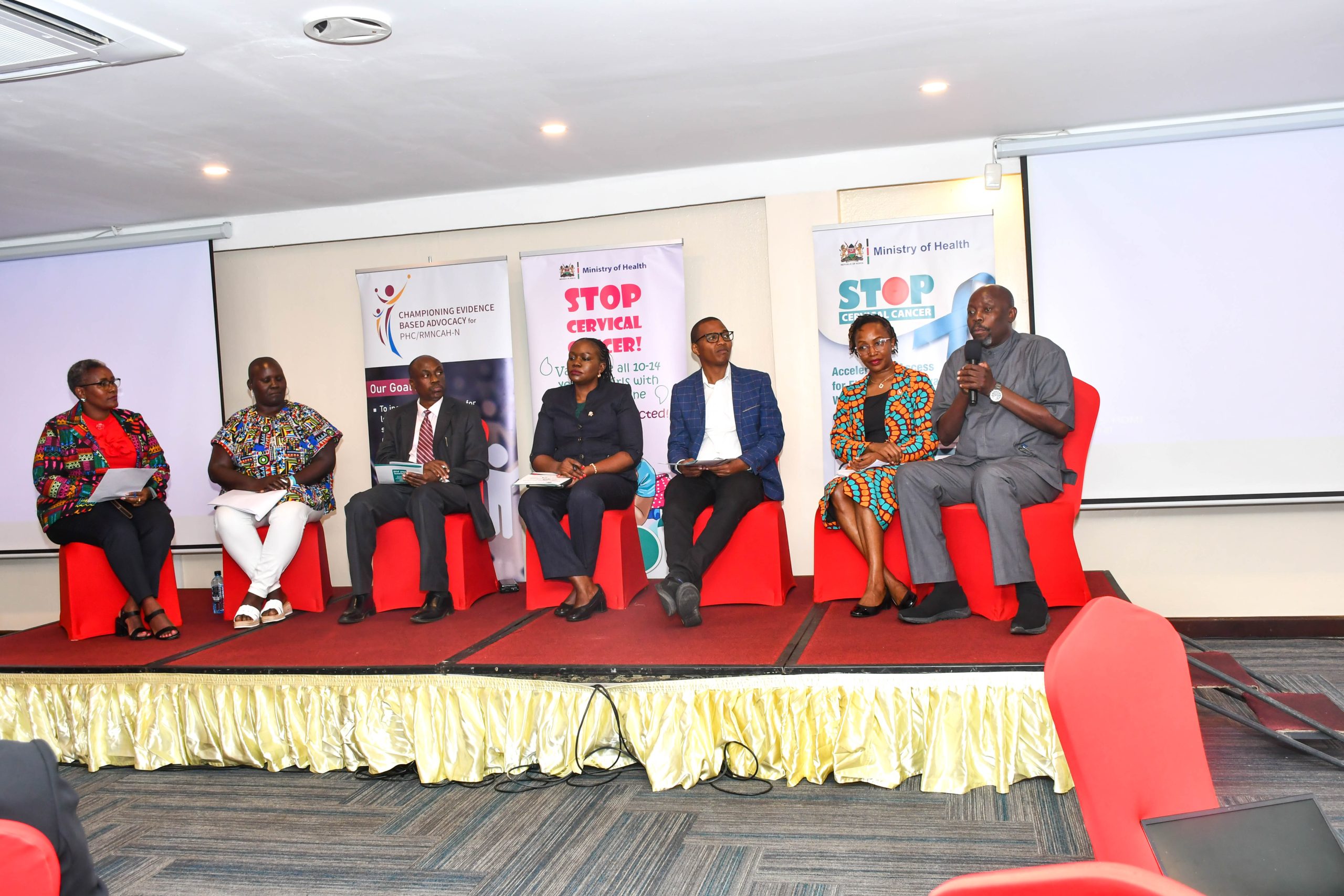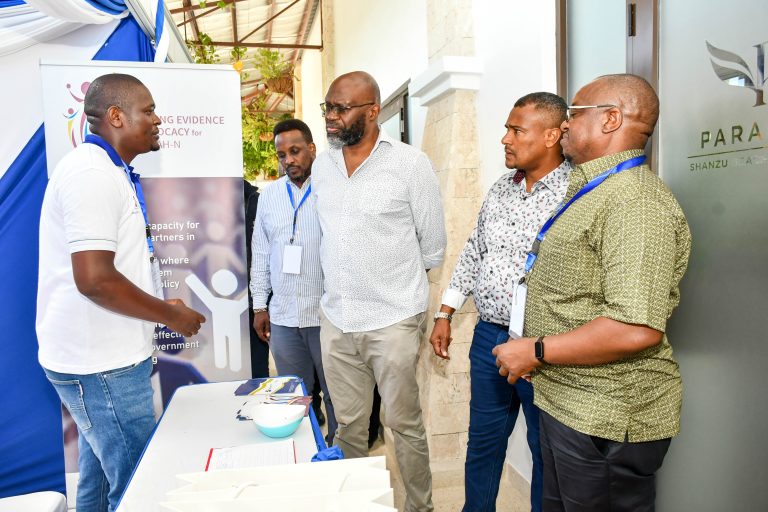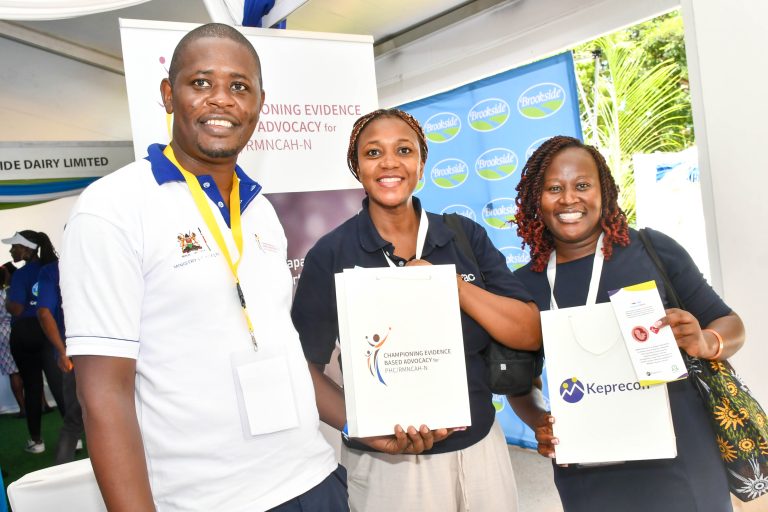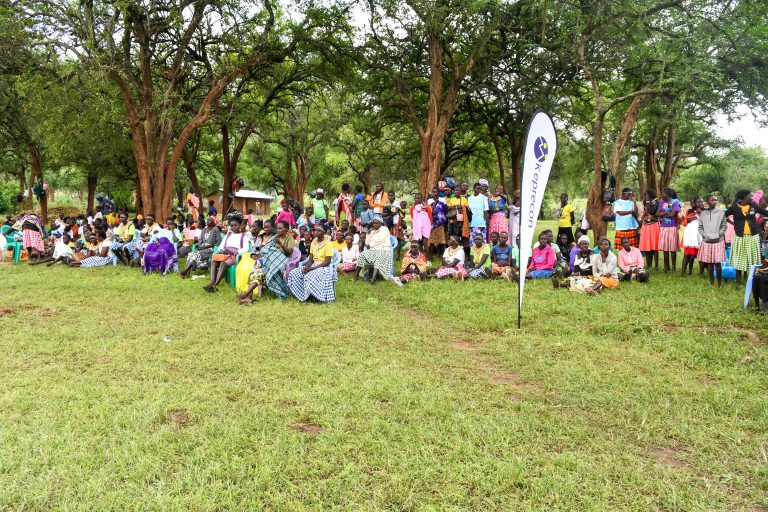CEBA Joins National Stakeholders to Advance HPV Awareness and Action
On 24th January 2025, CEBA played a pivotal role in Kenya’s 7th Annual National Cervical Cancer Awareness Month, participating in a landmark National Stakeholders’ Media Breakfast Meeting held at the prestigious Sarova Panafric in Nairobi. This crucial event, spearheaded by the Ministry of Health’s National Cancer Control Program (NCCP), served as a powerful platform to galvanize public awareness and rally comprehensive support for HPV vaccination and the broader objective of cervical cancer elimination across the nation.
The meeting convened an impressive assembly of over 70 influential participants, drawing together a diverse array of stakeholders including prominent journalists, key policymakers, strategic partners, and dedicated advocates. The collective aim was to foster a unified front in the fight against cervical cancer, leveraging the power of collaborative communication and advocacy. A significant and highly anticipated announcement at the breakfast was Kenya’s official transition to a single-dose HPV vaccine regimen, a strategic move that aligns the nation’s efforts with the World Health Organization’s (WHO) ambitious 90-70-90 targets for cervical cancer elimination. This shift is expected to significantly enhance vaccine uptake and accessibility, particularly in underserved communities.
Prof. Fred Were, CEBA’s Project Lead, contributed significantly to the discourse, joining a distinguished panel of experts. The panel featured influential representatives from key national health bodies, including the NCCP and the National Vaccines and Immunization Program (NVIP), as well as the Kenya Network of Cancer Organizations (KENCO). A deeply moving and impactful addition to the panel was a cervical cancer survivor, whose personal testimony underscored the profound human impact of the disease and the urgency of preventive measures. During the discussion, Prof. Were robustly emphasized the indispensable role of research-driven strategies in shaping effective interventions and highlighted the critical importance of grassroots advocacy in ensuring that these strategies reach and benefit every segment of the population.
The discussions throughout the meeting consistently underscored a pressing need for stronger, more strategic media engagement to disseminate accurate information and counter misinformation. Furthermore, there was a unanimous call for targeted community outreach initiatives designed to address specific cultural and logistical barriers to vaccination and screening. The sustained investment in preventive care, encompassing both vaccination programs and early screening initiatives, was identified as a non-negotiable component of a successful national strategy.
The meeting culminated in a resounding and unequivocal call to action, urging all stakeholders to transcend mere awareness and translate it into tangible, measurable impact. This imperative was articulated through a three-pronged approach: the urgent need for expanded HPV vaccination coverage to protect future generations, robust early screening programs to detect and treat pre-cancerous lesions, and unified, unwavering stakeholder collaboration to create a synergistic and resilient national response. These core pillars are not merely aspirational goals but form the very bedrock of CEBA’s evidence-based advocacy agenda, guiding its efforts to empower communities and influence policy for a future free from cervical cancer.





